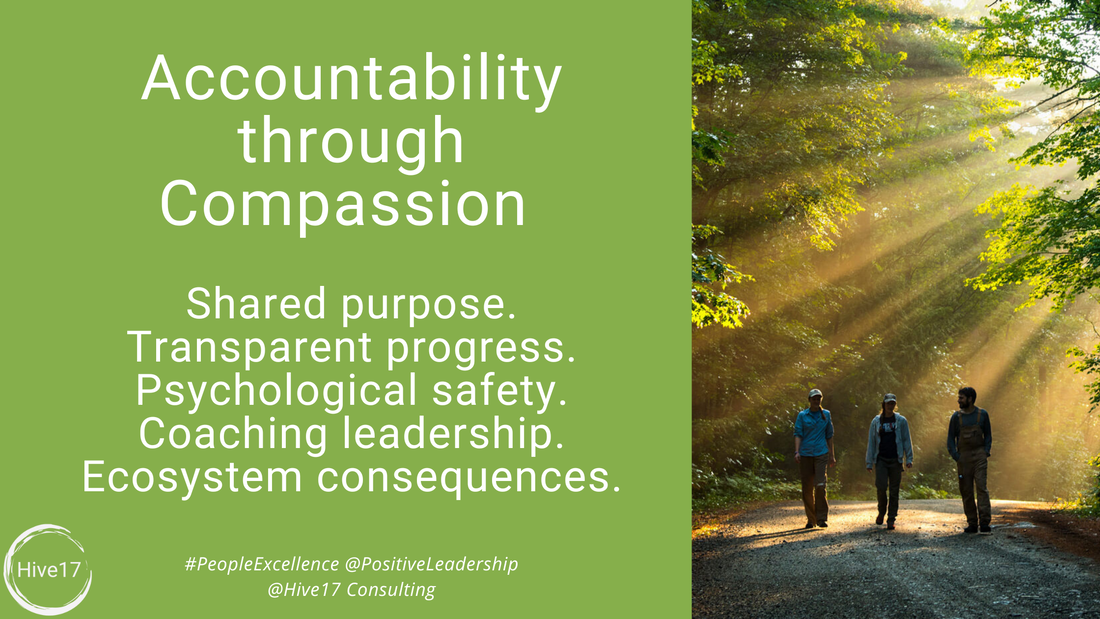|
Hands up who struggles with people that just do the minimum work? Yes, you are not alone. And it is frustrating to see the potential in people not being used to bring success for the company, for the team and for the individual. Your organisation might have great team bonding and a lot of fun. How well does this translate that everyone is giving their best? In my experience, being a nice and kind leader has its strong limitations. We need to go beyond this and be inspirational and supportive - I'd like to call this positive leadership.
In this context, I came across this Harvard Business Review article that highlights the challenge that we can't push and force people to feel accountable. Fear is a very bad motivator. The alternative, which leads to long-term and a deeply rooted ownership, is creating accountability using compassion. How can we go about this? It is about creating a fertile environment that cultivates that feeling of ownership. Here are some of the key elements for this. One elemental ingredient is a shared purpose - a clear goal that is collectively defined. All team members can identify themselves with this purpose and it provides meaning. This shared purpose is the Why, the direction that enables our daily decision-making. Setting clear goals is one thing; reviewing that we are walking in the right direction is another. No point in setting targets if we don't follow up. Effective teams develop routines to frequently, transparently review their achievements - this means identifying what is needed to further advance towards the defined key results, and sometimes have the courage to adjust them when circumstances have changed. One of the biggest blockers for accountability is the lack of a psychological safe environment - in simple terms: group trust. An environment where people can share their thoughts, are feeling respected, and are having fun, this will bring the people closer to their team members and to the organisation as such - a starting point for accountability. And it provides a lot of energy and drive to give their best. Everyone in the organisation has valuable expertise. When people are able to contribute their knowledge and experience to the advancement of the team, then they will feel proud - about themselves and about the team. So, it is important to be a coach and allow people to unfold their potential. As an experienced manager you might know the solution. Though, it is fundamentally more important to lead your people to find the solution themselves (with your support). Allow your team members to identify and define the How themselves - this allows you to avoid micromanagement. One important question here: if we are such a leader, are there any consequences? Yes, for sure; and they are not your typical: if you don't achieve your targets, you will be fired. There are always real consequences, typically from the ecosystem we are in: our customers are not able to sell their products based on our delays; we will not be able to be profitable; we will struggle to build confidence with our stakeholders; etc. This means we are appealing to their compassion and creating intrinsic motivation. Let's start the change and focus on enabling teams to give their best. Based on structure, routines and mindsets. Source: Hold Your Team Accountable with Compassion, Not Fear; Harvard Business Review, February 2023
0 Comments
Leave a Reply. |
Subscribe
Receive our monthly themed summaries of our thoughts: click! TimTim is a change practitioner in the area of innovation and excellence. He is working with teams to accelerate innovation, collaboration and agility. Categories
All
Archives
July 2024
|


 RSS Feed
RSS Feed